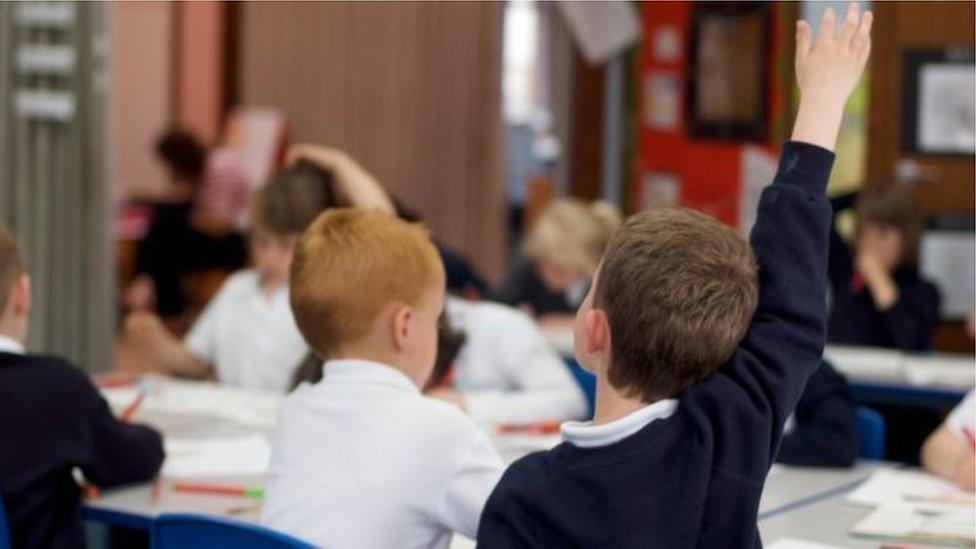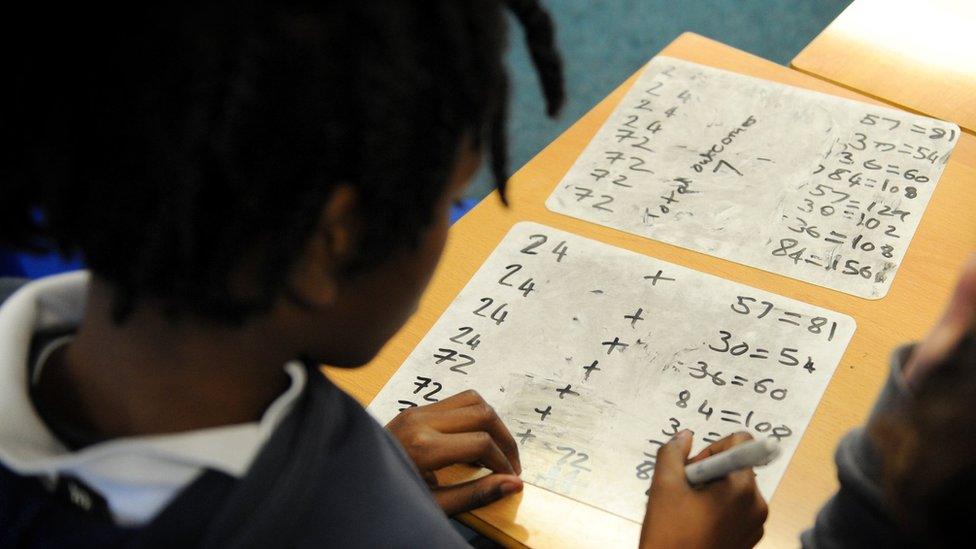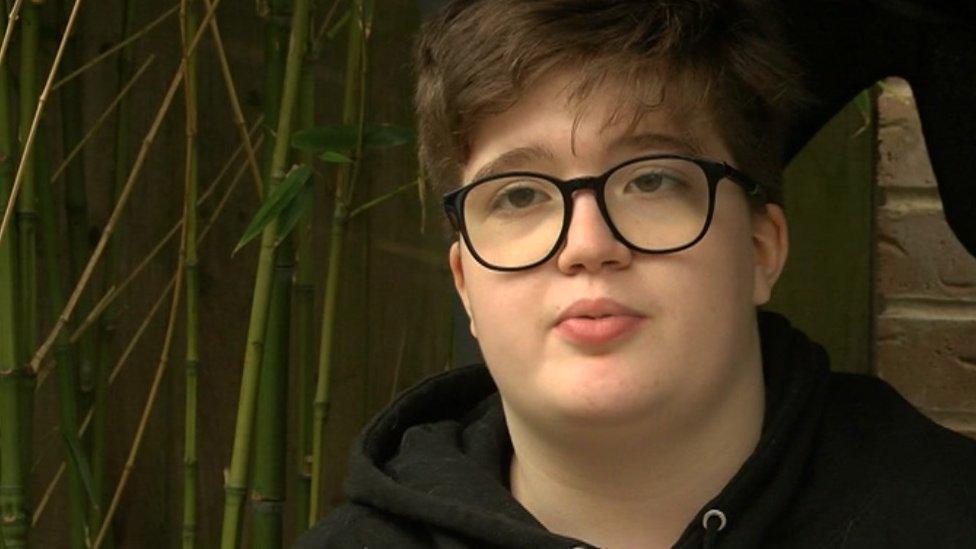Hackney: School refusers often have autism - parents' survey suggests
- Published

Parents in Hackney feel more can be done for the children refusing to go to school
Children who are persistently absent from school are often autistic, a survey by a Hackney parents' group suggests.
A report by Hackney Independent Parents (Hip) has been investigating the growing problem of "emotionally based school avoidance (ESBA)", a local authority meeting heard.
It surveyed a cohort of parents whose children are impacted by ESBA.
A total of 83% of respondents say their child has been diagnosed with autism., external
ESBA describes children and young people who refuse to go to school due to emotional factors resulting in persistent absence.
In Hackney, 95% of parents surveyed by the Hip group said they had a child with special needs, and almost half said their child was in receipt of free school meals.
Most parents also said their child was persistently absent from school because they were not receiving appropriate support. Two thirds of parents felt their concerns were being ignored by the school.
One parent commented: "My son has a caring and loving teacher, however I believe her lack of deep knowledge of autism makes the situation really hard both for my son but also herself."
Another parent said at the council meeting on the matter on Monday: "Whenever I managed to get [my son] in, they punished him for truancy, underachieving and defiance, which in turn makes him not want to go in. It was a vicious cycle."

In Hackney, there is a backlog of 500 children waiting to get a diagnosis of suspected autism, the council meeting was told
The number of children in London persistently missing more than 50% of school sessions rose from 6,586 in the 2018-19 academic year to 14,689 in 2022-23, London Councils says.
Last year, more than 140,000 children in England were repeatedly absent from school in the spring term - nearly three times as many as before the pandemic, according to government statistics.
'Diagnosis backlog'
In Camden, schoolchildren persistently missing 10% or more of school sessions increased from 2,806 in 2018-19 to 4.296 in 2022-23 but figures were not available for Hackney.
In Hackney, there is a backlog of 500 children waiting to get a diagnosis of suspected autism, with a current wait time of up to a year and a half, the council meeting heard.
When presenting their findings to Hackney Council, the Hip group said more than two thirds of these children also had another diagnosis of neurodiversity or mental illness.
Yvonne Wade, principal education psychologist for Hackney Council, assured councillors that the Autism Education Trust offered, "comprehensive and extensive training for schools to support those presenting needs as well as those with an official diagnosis".
Hackney Council said it was working to improve support pathways for children off school due to ESBA, and they were to deliver an "Emotional Health and Wellbeing Partnership".
There was no specific piece of work tailored towards combatting ESBA among children with autism, the council added.

Listen to the best of BBC Radio London on Sounds and follow BBC London on Facebook, external, X, external and Instagram, external. Send your story ideas to hello.bbclondon@bbc.co.uk
- Published30 January 2024
- Published6 September 2023

- Published15 September 2021
